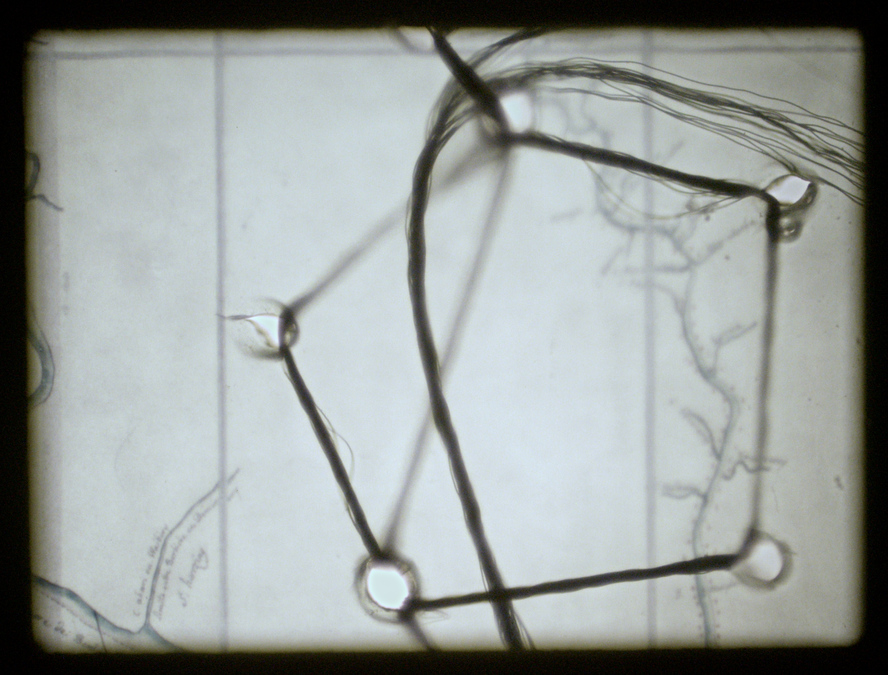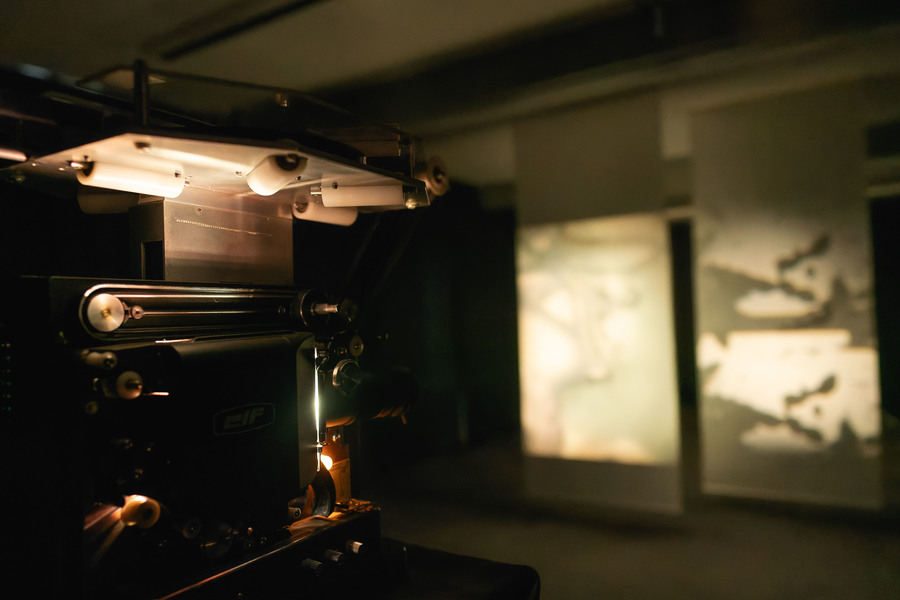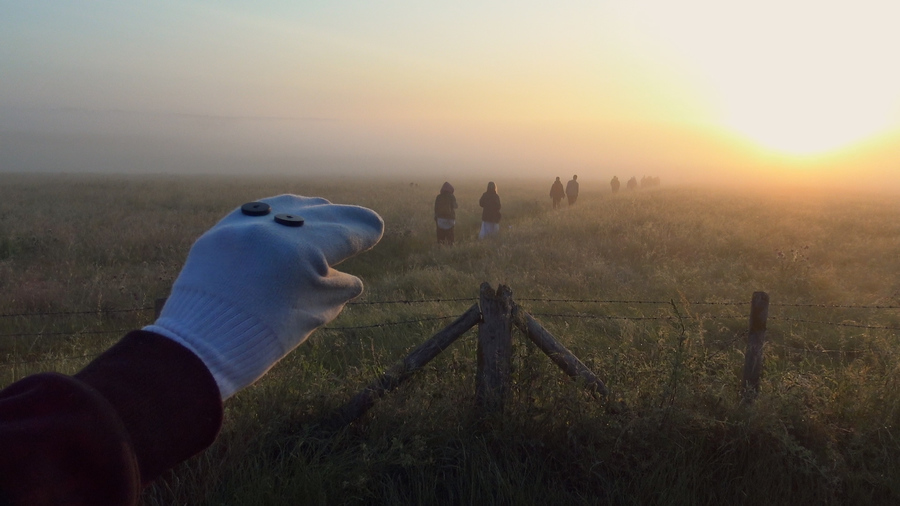New Ways of Seeing: Alchemy Film & Moving Image Festival 2025
We look back at another invigorating edition of Alchemy Film and Moving Image Festival, where a sense of solidarity was formed in the dark of the cinema auditorium with work reminding us to resist hegemonic narratives and to continue to speak to power
The banner adorning Heart of Hawick for the annual Alchemy Film and Moving Image Festival reads ‘Embrace the Strange’. Like a lighthouse beacon, this enticing slogan draws in travellers near and far to bask in an oasis of experimental film and moving image work across the festival’s four richly-programmed days. Ahead of each screening, audiences are summoned into the theatre by the customary ring of an old brass handbell. It begins to engender a Pavlovian effect over the course of the festival, such that we begin to salivate in anticipation of another full-course meal of moving image experimental. Each ring welcomes us into the cocooning dark, oriented together towards the screen. Light and dark, illumination and shadow: both the physical and metaphysical inquiry that animates film itself, its elemental alchemy.
Returning for its 15th edition, the Alchemy Film and Moving Image Festival programme this year enjoined and rewarded curiosity – an active desire to have one’s way of understanding the world broadened and deepened – more than ever. Arts organisations eagerly self-narrate as platforms for plurality: often, this liberal talking point merely disguises a commitment to a violent and oppressive status quo under the guise of false ‘neutrality’, as if the world is a white-walled gallery where all are equally empowered (or at least muzzled) to express their beliefs from the same podium. Yet to discover a vastness in approaches, experiences and methodologies at Alchemy is not to apolitically dabble in artistic curios, in diversity for (corporate) diversity’s sake. The festival continues to be a partisan intervention – which is to embark from a basic understanding that the power of collectively experiencing radical art in times of genocide, disaster, and compounding forms of spectacular and horrifically mundane violence cannot be trivialised.
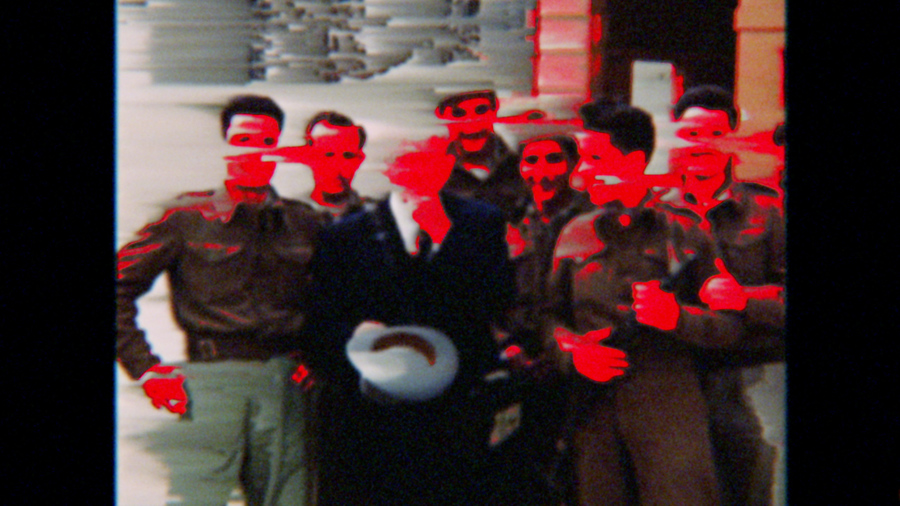
Kamal Aljafari’s A Fidai Film
A film festival cannot change the world, but it can remind us of what we need to access, lodged inside our throats and our guts, to pick up the stone and throw it. Curation is care, and to care is also to be enraged. Like the blood red intrusions on archival footage of Palestine looted by Israelis during the 1982 invasion of Beirut in Kamal Aljafari’s A Fidai Film, or the sabotaging interrogation of gender surveillance and border security narratives in Hogan Seidel’s Clear, rage reactivates our ability to see ossified grand narratives of history, politics and relationality for what they are: conditional, and susceptible to insurgency.
The festival anchors an expansive and far-reaching international solidarity firmly within Hawick, as exemplified by researcher-in-residence Francisco Llinas’s event Excerpts on Extraction, which investigated the socioeconomic flows of Venezuela through film, performance, and film restoration itself.
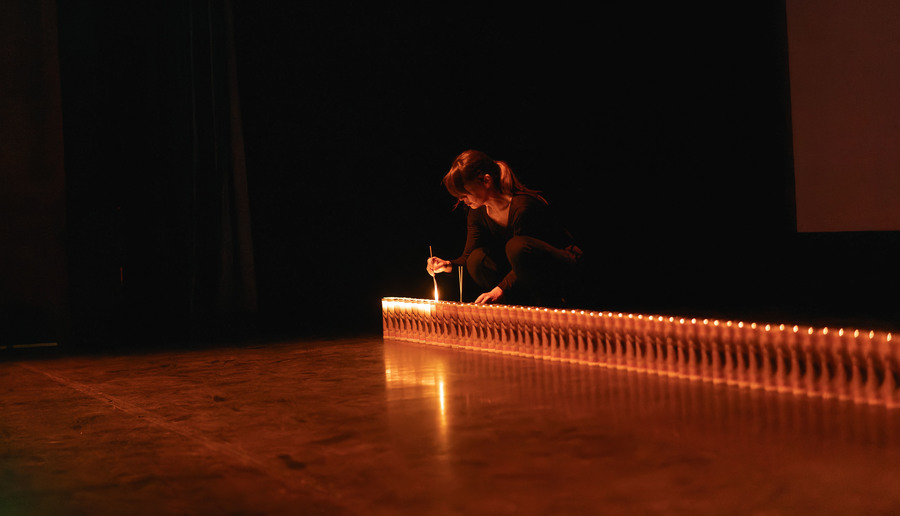
Immigration Services by Esperanza Mayobre, part of Excerpts on Extraction | Image: Sanne Gault for Alchemy Film & Arts
Years of deepening roots in the Scottish Borders have borne fascinating and interdisciplinary fruit at Alchemy. This edition’s moving image installations featured a retro console and video game about neurodiversity co-designed by 16-25 year-olds from the Borders Additional Needs Group. There was also Maybelle Peters’ sculptural 16mm work We Deh Here, made in residency at Alchemy. Braiding images of Scottish graveyards with 19th-century maps of slave plantations in British Guiana in revelatory juxtaposition, the exhibition invites viewers to literally step into a knot of vastly historical and intimately personal threads being unravelled, with hand-embroidered strips of 16mm pulled into the projector from reels strung up on the wall.
And, of course, the festival’s ceilidh – without overthinking what is also just a really fun time – breathes life into its self-described practice of “joy-in-comradeship”, with one and all linking arms, working together, and making meaning. Preceded by the launch of Alchemy musician-in-residence Miwa Nagato-Apthorp’s debut EP, Noren – songs written in Hawick exploring the artist’s dual Scottish and Japanese heritage and dedicated to activists, outsiders, and Palestinians facing genocide – the evening was powerfully moving, fostering the kind of genuine connection foreclosed by the transactional nature of a traditional film festival’s ‘networking’ event.
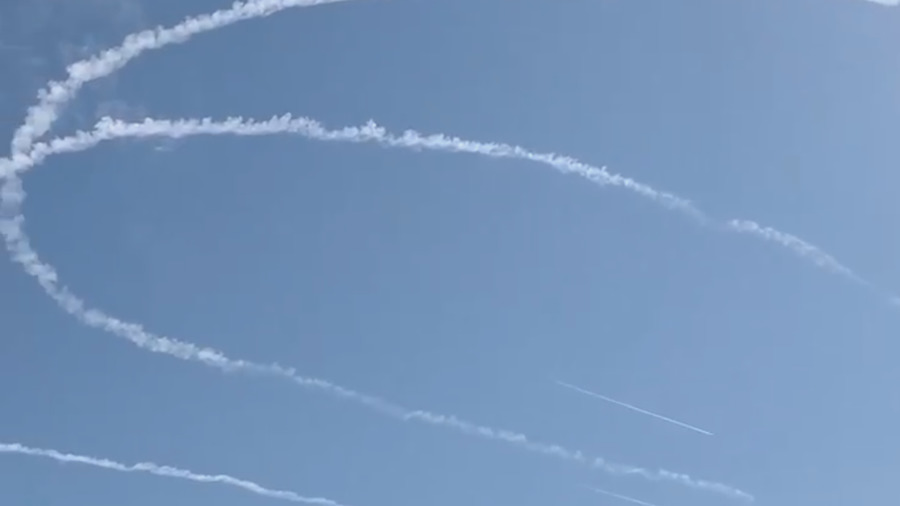
Lawrence Abu Hamdan's The Diary of a Sky
It is difficult to isolate highlights from a programme so purposefully curated that even more generative than the films themselves is the space we are given to imagine what lies between and beyond them. Yet it would be remiss not to mention the exhibition of Lawrence Abu Hamdan’s The Diary of a Sky, a stunning excavation and denaturalisation of the militarisation of Beirut’s skies, sonically and psychically terrorised by Israel’s drones and fighter jets.
Amongst multiple fascinating shorts programmes, standouts included Did Such A World Ever Exist, nine films inventively exploring public space and mythology, and closing shorts programme And Enter. Bookended by Louis Scantlebury’s Seek Beyond – about a sock puppet instigated to discover the meaning of life after reading some faux-spiritual ad copy – and Madison Brookshire’s profoundly beautiful Set, a single ten-minute long take of a blue night sky filled with the cacophonous calls of a flock of wild parrots the filmmaker happened to come across, it exemplified everything nourishing, urgent, and transformative about being asked to embrace the strange.
To attend Alchemy is to be immersed in ways of seeing that unmake hegemonic truth and power – and to be urgently reacquainted with the necessary imagination and sense of possibility we need to think our way out of the mess.
More from Alchemy Film and Moving Image Festival:
Maxime Jean-Baptiste on hybrid documentary Kouté vwa
Corin Sworn introduces On Weaving, a study of labour, gender and migration centered on Bernat and Margaret Klein
Alchemy Film and Moving Image Festival 2025 ran 1-4 May
alchemyfilmandarts.org.uk
